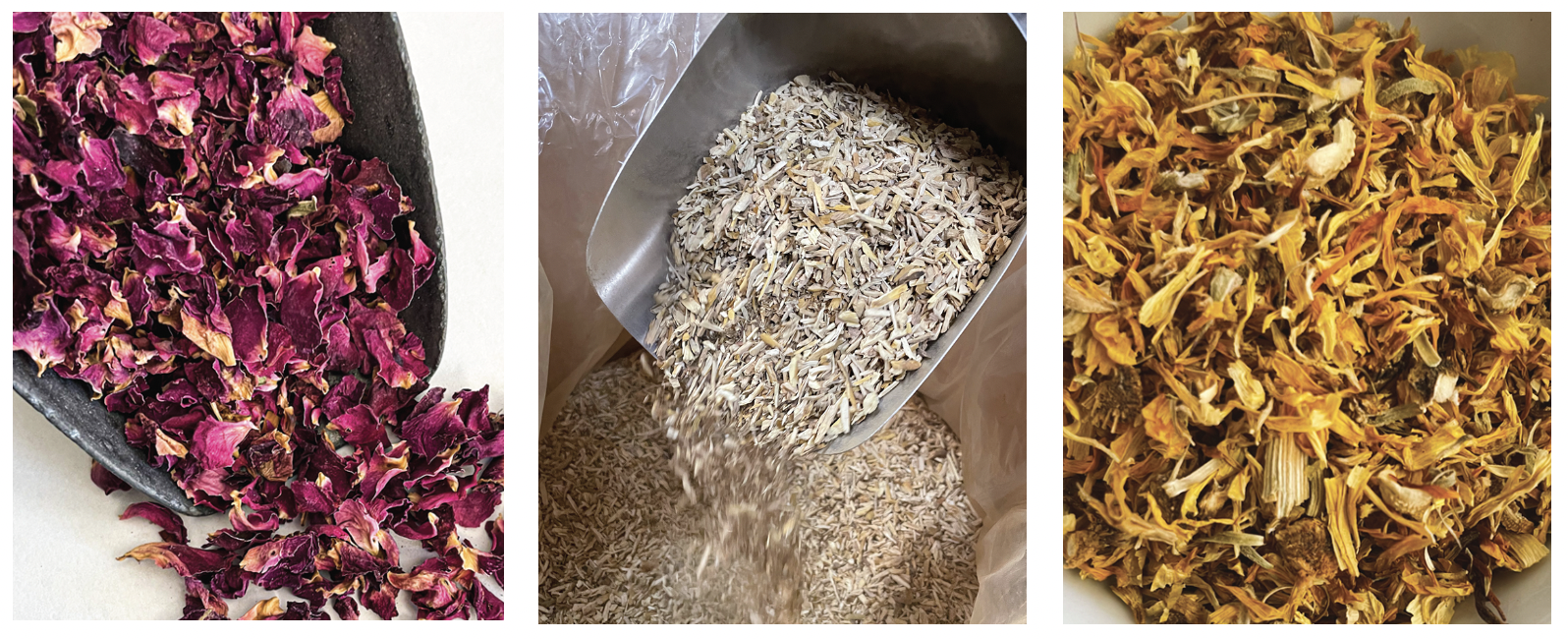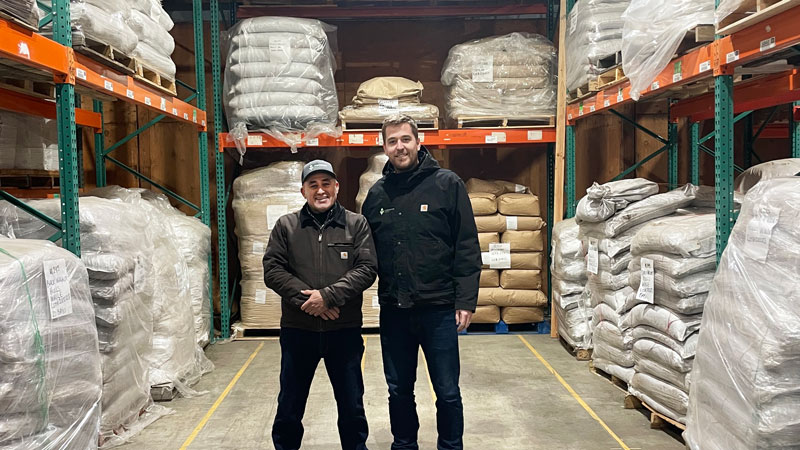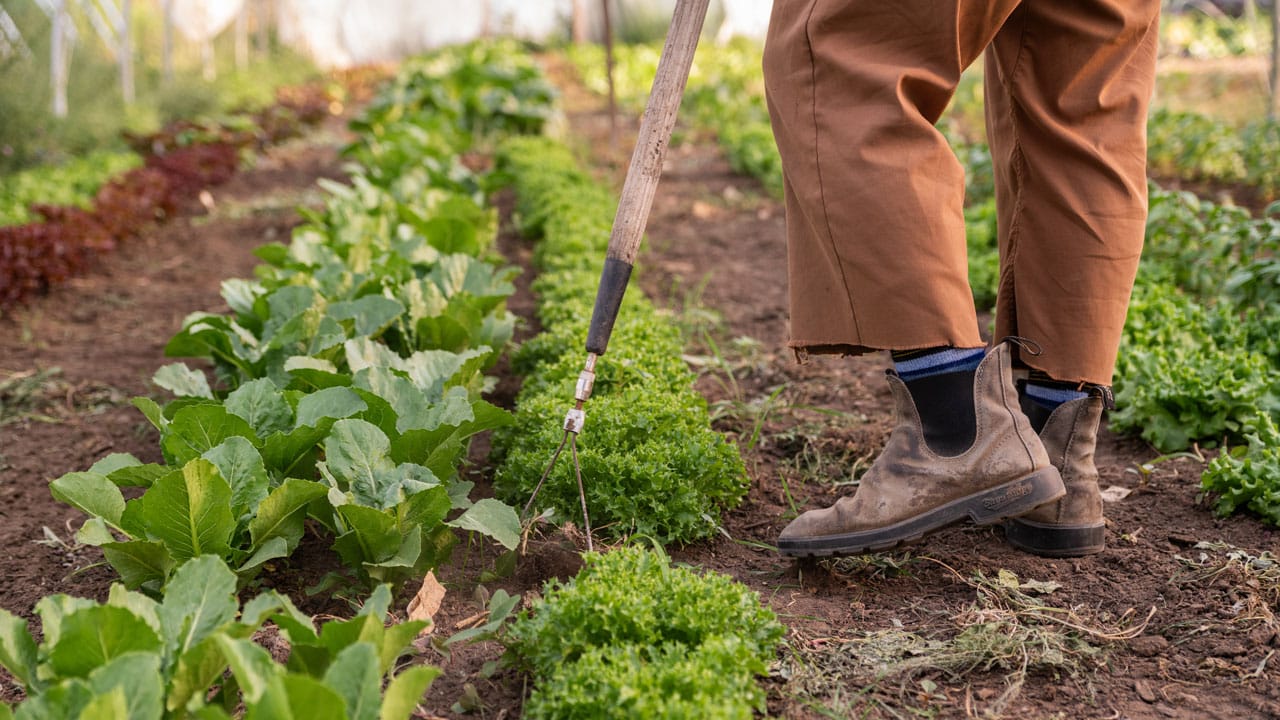The Mueggenburg Group was founded in Germany eighty years ago to trade herbs and spices around the globe. In 2014, the company set up a North American branch in Culver, Oregon. More than 700 different botanical products pass through the warehouse for processing and distribution annually. Bend Magazine sat down with CEO Nils Mueggenburg to learn about the global business of botanicals.

Tell us about your company and background.
We are a fourth-generation, family-owned and -operated business which supplies dried raw botanical and spice ingredients to the tea, food, homeopathic and nutraceutical industries. These ingredients include roots, barks, leaves, berries and gums. With over eighty years of trading herbs globally, we have established long lasting partnerships with companies and farms around the world to provide high quality organic and non-organic herbs. In addition to our facility in Culver, we currently have operations in Germany, Poland, and Appalachia. The Mueggenburg Group is managed by Dirk Mueggenburg and his two sons, Jan and Nils.
Tell us a little about the business of botanicals.
Although the herbs and spice industry has changed significantly over the years, one thing has stayed the same: family. Family operations are responsible for most harvests—whether it’s a family farm that grows echinacea and valerian on their land, or a family practice to harvest slippery elm bark in the woods for extra income each spring. The harvests are then purchased by companies like ours, who then prepare the products for the global market.
Once received, we analyze the products for pesticides, heavy metals, and any dangerous pathogens, and determine what industry this material is best suited for. Next we process the product accordingly—usually by cutting, sifting, and/or powdering. We heat-treat material to ensure dangerous pathogens are killed and the product is safe for consumption. Once we have completed this processing right here in Culver, the botanical product will be shipped to our customers.
Why did you choose Culver?
This farm was owned by an old family friend whose tea company went out of business. We realized the farm had good potential to be our new North American branch and purchased it. It was a regular farm with mills and warehousing space. In the last couple years, we’ve transformed the facility from a traditional farm to a food-grade botanical warehousing and manufacturing operation. Currently we process and handle approximately one million pounds of herbs and botanicals at our Culver location annually.

What is grown onsite at Mueggenburg Farms?
On our humble ten acres of certified organic farmland, we are growing alfalfa and goldenseal. Alfalfa is known to grow well in the area, but in 2021 our alfalfa fell through due to the drought, as the little water we had went to our new project—goldenseal. Last year we started a cultivation of goldenseal, an endangered species which must be artificially propagated and certified by the Department of Fish and Wildlife to be exported overseas. It’s a long-term project to keep a sustainable supply of this item for our partners.
What are products you import or collect domestically and what are they used for?
Domestically, we get Oregon Grape root and Cascara Sagrada bark out of the Cascades. Oregon Grape is used for its anti-bacterial properties and Cascara Sagrada is commonly used in laxatives. Out of Appalachia we harvest items such as Slippery Elm Bark, used in teas, as well as black cohosh root which is commonly used in women’s health products. From South America we import botanicals such as pau d’arco bark, guarana seeds, and sarsaparilla root. Through our sister companies in Europe, we regularly import immune boosters, such as elderberry and echinacea, but also items like valerian root, licorice, passionflower, and juniper berries. Occasionally we’ll also import kava kava root from Fiji, green tea from China, or even yohimbe bark from Cameroon.
Who are your clients? How do they differ?
Our clientele varies greatly: tea companies, extract manufacturers, breweries and distilleries, pet food manufacturers, dietary supplement companies, herb and spice shops, homeopathic companies, skin care companies, flavor companies, as well as pharmaceutical companies. One of our core strengths is flexibility, as we can offer various cut sizes of the same product.
What are some industry challenges?
One of the big challenges we face is increased standardization. The consumer side of the industry requires consistent, standardized product. But the supply side is the exact opposite—nature will give us good crops and bad crops; strong oil content and weak oil content; strong assays one year and weak the next. It’s difficult to navigate at times, which is why supplier relationships are crucial to maintain. Our harvesters and growers are the first to know what the harvest will be like, and the more we communicate, the better we can prepare ourselves and our customers for inevitable fluctuations.
Your products are natural plants that largely rely on Mother Nature. What global climate change impacts are you and your partners experiencing?
Increased unpredictable weather leads to unpredictable crops, which causes price fluctuations and uncertainty. In other words, it makes prices go up when we are less sure about a harvest.
We saw several Oregon growers last year completely cease their growing operations due to the drought, which was quite sad to see. There’s not much we can do when something like this happens, and the unfortunate result is just a decrease in confidence in that growing region. It’s hard to imagine that in ten years’ time things will be better. Climate change was absolutely a contributing factor to why we have pivoted our primary operations from a farm to a manufacturing operation.
What are your goals and plans for future?
The new manufacturing facility has allowed for significant increase in productivity which will allow us to offer our milling services to third parties. Also known as “toll work,” customers can send us their product and we can cut, blend, and powder it for them.
Additionally, we’re looking to expand our small-volume side of the business. Currently our volumes we offer start at around fifty pounds which is too large for many small businesses who may just need one to five pounds of a product. We’re hoping this can help grow our business while also getting us more involved with other Central Oregon businesses. And who knows, maybe we’ll make some friends along the way!
Learn more about The Mueggenburg Group here. | Read more about Central Oregon businesses here.







